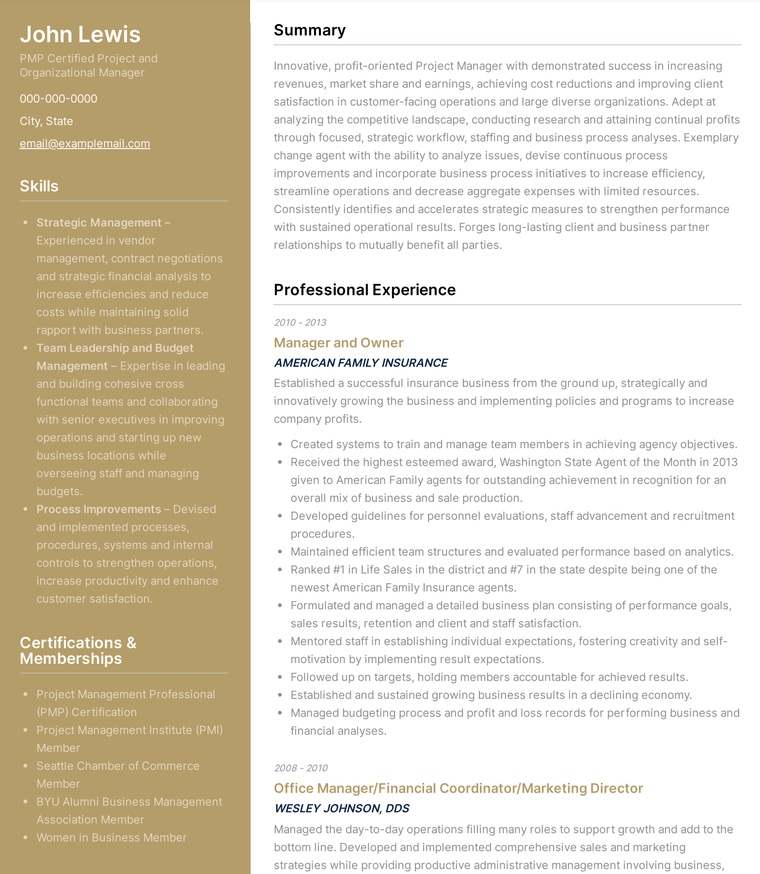Navigating the job market can be an exciting journey, and your CV is often your first impression. It’s more than just a list of your past roles; it’s a strategic document designed to showcase your skills, experience, and suitability for a particular position. Different countries have varying expectations for what a strong CV looks like, and understanding these nuances can significantly boost your chances of securing an interview.
If you are looking to work in New Zealand, or for a New Zealand-based company, understanding the local expectations for your application is crucial. While many global best practices apply, there are specific preferences and cultural considerations that make a New Zealand style CV template quite distinct. This article will help you understand these key differences and equip you with the knowledge to craft a compelling CV that resonates with New Zealand employers.
What Makes a New Zealand Style CV Unique?
When crafting your CV for the New Zealand job market, it’s important to remember that employers often value conciseness, relevance, and a focus on demonstrable achievements. A typical new zealand style cv template prioritises clarity and professionalism over elaborate designs or excessive personal details. This approach helps recruiters quickly identify whether your skills and experience align with the role they are trying to fill, making their initial screening process more efficient.
One of the most notable distinctions is what you should omit. Unlike some other countries, a New Zealand CV typically does not include a photograph, your age, marital status, religious beliefs, or even your date of birth. The emphasis here is firmly on your professional capabilities and experience, ensuring that hiring decisions are based purely on merit and suitability for the job, rather than on personal characteristics. This practice aligns with New Zealand’s strong commitment to non-discrimination in employment.
Furthermore, the structure often encourages a strong personal profile or summary at the beginning, immediately followed by key skills. This section acts as an elevator pitch, succinctly outlining your career aspirations and what unique value you bring to a role. It’s an opportunity to hook the reader and compel them to delve deeper into your professional history. Ensure this summary is tailored to the specific job you are applying for, highlighting how your top attributes meet the employer’s needs.

The main body of your CV will detail your work history and education. For each role, focus on your achievements rather than just listing duties. Employers want to see the impact you made, quantified wherever possible. Use action verbs and provide examples of how you added value, solved problems, or contributed to positive outcomes. This performance-oriented approach is highly valued in the New Zealand professional landscape.
Key Sections to Include:
- **Contact Information:** Your name, phone number, email, and LinkedIn profile URL (if professional and up-to-date).
- **Personal Profile/Summary:** A brief, compelling paragraph outlining your career goals and what you bring to the table.
- **Key Skills/Core Competencies:** A bulleted list of your most relevant hard and soft skills.
- **Work Experience:** In reverse chronological order, detail your roles, responsibilities, and, crucially, your achievements.
- **Education:** List your qualifications, starting with the most recent.
- **References:** State “References available upon request” rather than including actual contact details at this stage.
Crafting Your Impactful New Zealand CV
Beyond understanding the essential components, truly making your New Zealand style CV stand out involves strategic writing and presentation. Remember, your CV is a marketing tool, and its primary goal is to secure an interview. Therefore, every section should be purposeful, demonstrating how your unique blend of skills and experiences aligns perfectly with the specific requirements of the role you’re targeting. Avoid a one-size-fits-all approach; tailoring your CV for each application is paramount.
When describing your past roles, move beyond merely listing duties. Think about the results of your actions. For instance, instead of "Managed social media accounts," consider "Increased social media engagement by 25% within six months, leading to a 10% rise in qualified leads." Quantifying your achievements with numbers, percentages, and specific examples provides tangible evidence of your capabilities and impact. This data-driven approach appeals strongly to New Zealand employers who seek measurable contributions.
The language you use also plays a significant role. Employ strong action verbs at the beginning of your bullet points to convey professionalism and dynamism. Words like "Developed," "Implemented," "Led," "Achieved," "Optimised," and "Streamlined" create a more compelling narrative than passive or generic phrases. This makes your accomplishments more impactful and easier for recruiters to digest quickly, as they often scan CVs for key information.
Finally, meticulous proofreading and a clean, professional layout are non-negotiable. A CV riddled with typos or grammatical errors suggests a lack of attention to detail, which can be a red flag for employers. Ensure your formatting is consistent, easy to read, and not overly elaborate. A clear, concise, and error-free document not only presents you as a diligent professional but also respects the recruiter’s time by making their review process as smooth as possible.
Remember these key tips:
- **Tailor it:** Adapt your CV for every job application, highlighting only the most relevant experience and skills.
- **Quantify achievements:** Use numbers and data to demonstrate the impact of your work.
- **Use action verbs:** Start bullet points with strong verbs to describe your accomplishments.
- **Proofread thoroughly:** Eliminate all spelling and grammar errors. Consider asking someone else to review it.
- **Keep it concise:** Aim for two to three pages for most professional roles.
By adhering to the principles of a well-structured and achievement-focused New Zealand style CV, you significantly enhance your chances of catching the eye of prospective employers. Your CV is your opportunity to articulate your value proposition clearly and compellingly. By focusing on your skills, quantifying your achievements, and presenting a polished, relevant document, you are well on your way to making a memorable first impression and opening doors to new career opportunities in New Zealand.
